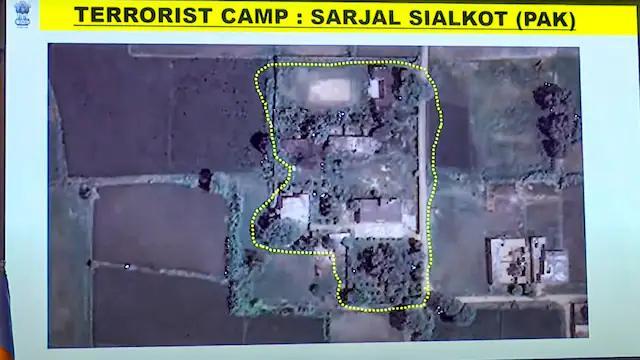
India Fast-Tracks $3-Billion Surveillance Satellite Scheme after Operation Sindoor
In the wake of heightened tensions with Pakistan following Operation Sindoor, India has reportedly accelerated its efforts to augment its satellite-based surveillance capabilities. The government has allegedly approached three private firms, tasking them with developing high-resolution surveillance satellites at a cost of $3 billion. What’s more, the satellite development schedule has been expedited from four years to 12-18 months, underscoring the country’s resolve to enhance its space-based surveillance capabilities.
The Indian government’s decision to fast-track the surveillance satellite scheme comes against the backdrop of a tumultuous relationship with Pakistan. The recent Operation Sindoor, which saw the Indian Air Force (IAF) bomb a Jaish-e-Mohammed (JeM) terrorist training camp in Balakot, has further strained ties between the two nations. Pakistan has responded with retaliatory airstrikes, and the situation remains volatile.
India’s decision to bolster its satellite-based surveillance capabilities is a strategic move to counterbalance Pakistan’s aggressive military posturing. The country’s space agency, Indian Space Research Organisation (ISRO), has been at the forefront of developing advanced space-based surveillance systems. In recent years, ISRO has successfully launched a series of satellites, including the RISAT-2BR1, which is capable of providing high-resolution imagery.
The $3-billion surveillance satellite scheme is an ambitious project, aimed at developing a constellation of high-resolution satellites that can provide real-time surveillance capabilities. The project is expected to involve three private firms, which will work in collaboration with ISRO to develop the satellites. The firms involved in the project have been tasked with accelerating the development process, with the aim of launching the satellites within the next 12-18 months.
The surveillance satellites will be equipped with advanced sensors and cameras, capable of capturing high-resolution images of objects on the ground. The images will be transmitted back to Earth, providing real-time intelligence to the Indian military and intelligence agencies. The satellites will also be equipped with advanced communication systems, enabling them to transmit data in real-time.
The Indian government’s decision to fast-track the surveillance satellite scheme is seen as a strategic move to counterbalance Pakistan’s military posturing. Pakistan has been increasingly aggressive in its military activities, particularly in the wake of the Balakot airstrike. The country has been using its military to destabilize the region, and India is determined to counter this threat with its advanced space-based surveillance capabilities.
The surveillance satellites will provide India with a significant advantage in terms of military intelligence gathering. The real-time images and data transmitted by the satellites will enable the Indian military to track enemy movements and respond quickly to emerging threats. The satellites will also provide India with a significant advantage in terms of border security, enabling the country to monitor its borders more effectively.
The Indian government’s decision to fast-track the surveillance satellite scheme is also seen as a response to China’s growing military presence in the region. China has been increasingly aggressive in its military activities, particularly in the South China Sea. India is determined to counter this threat with its advanced space-based surveillance capabilities, which will provide it with a significant advantage in terms of military intelligence gathering.
In conclusion, India’s decision to fast-track its $3-billion surveillance satellite scheme is a strategic move to augment its space-based surveillance capabilities. The project is expected to involve three private firms, which will work in collaboration with ISRO to develop high-resolution surveillance satellites. The satellites will be equipped with advanced sensors and cameras, capable of capturing high-resolution images of objects on the ground. The images will be transmitted back to Earth, providing real-time intelligence to the Indian military and intelligence agencies.
The Indian government’s decision to fast-track the surveillance satellite scheme is seen as a response to the heightened tensions with Pakistan following Operation Sindoor. The country is determined to counter Pakistan’s aggressive military posturing with its advanced space-based surveillance capabilities. The project is expected to provide India with a significant advantage in terms of military intelligence gathering and border security.






